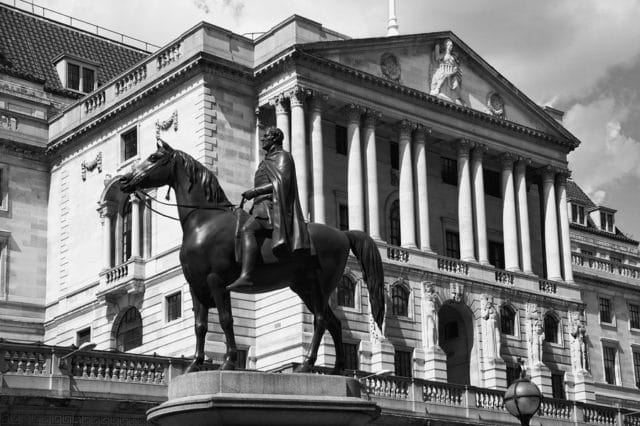England has been through a lot in recent months. The Queen turned 90, a reminder of our own mortality and her lack of, the majority of the nation voted to ‘leave’ the EU last month in the historic Brexit vote and because of that vote the Bank of England has been monitoring the market, anticipating change for the worse. However, as released the morning of July 14 the Bank of England has “unexpectedly kept its key interest rate unchanged (Ward, Bloomberg News, 2016).”
The financial future of the UK was left up in the air for most UK citizens. After the Brexit vote, many who voted to ‘stay’ thought this would be disastrous – burning bridges where economic ties and trade relationship had flourished through the UK’s time with the EU. Others who voted to ‘leave’ thought this would ring in a new era for the empire – and Britain would regain its role as a global powerhouse through self-prospering wealth.
In typical British fashion with very little emphasis on the severity of the situation, Chancellor Phillip Hammond says the UK is entering a “new phase”, which will be judge by a “different set of parameters (BBC News, 2016).” Though Hammond’s words do little to draw up excitement or fear for the British economy it will be undergoing changes over the next year and throughout the separation from the European Union. “The central bank is due to publish its quarterly Inflation Report on August 4th, which will include new forecasts for growth and inflation and the MPC’s (Monetary Policy Committee) first full take on how the referendum outcome is set to affect the U.K (Ward, Bloomberg News, 2016).”
Shocking most investors the 9 member Monetary Policy Committee voted to keep the benchmark interest rate at 0.5%. Investors will be shocked as most thought the rate would be lowered in order to handle the results of the referendum and ease worries. The Central Bank of Britain has said they have discussed methods they could employ in order to help the economy. However, they did not explain what these methods are exactly when questioned further.
“Sterling soared to $1.3480, up more than 2 per cent on the day and its strongest since June 30, after the policy decision, having traded at $1.3210 immediately before. But it then pared those gains to trade at $1.3325, still up 1.3 per cent on the day (Ward, Bloomberg News, 2016).”
After the Brexit vote, the Housing market immediately slumped. Buyer interest and the expectation of future sales withered away as the referendum votes rolled in and it became clear the ‘leave’ side would win the Brexit vote. The uncertainty caused by the referendum created a marked drop in the market. The housing market has still not recovered from the referendum. This comes after an 8% surge in the second quarter of housing units on the market, as sellers tried to beat the new tax that will be implemented in the coming months (Reuters, 2016).
Expectations of future sales declined at the fastest pace since records began in 1998. The Royal Institute of Chartered Surveyors released a poll taken after the referendum that concludes; “RICS data does suggest that the dip in activity will persist over the coming months but the critical influence looking further ahead is how the economy performs in the wake of the uncertainty triggered by the vote to leave,” said RICS chief economist Simon Rubinsohn (Reuters, 2016). The survey was conducted after the result of the referendum became clear on June 24. The ‘Leave’ vote sent sterling to its lowest level against the dollar since 1985 and raised fears that Britain is heading into recession.
In 2015, Renters of London properties contributed £15 billion to the capital’s economy. However, most rents in every borough of the city are outstripping wages and a severe shortage of new affordable homes being built, vital workers are being forced out of the city. Young professionals are also struggling to afford to live in London. The report finds that a salary of £59,000 – almost double the average wage – is needed to afford the rent on a home in Inner London (McAdam, 2016). Businesses of all sizes and sectors have made it clear that both housing cost and availability is negatively impacting on their ability to recruit and retain staff.
The United Kingdom’s financial future will be something to watch in the coming months. It seems to be clear citizens of England want their domestic concerns to be a priority for the governments and its affiliated bodies.










